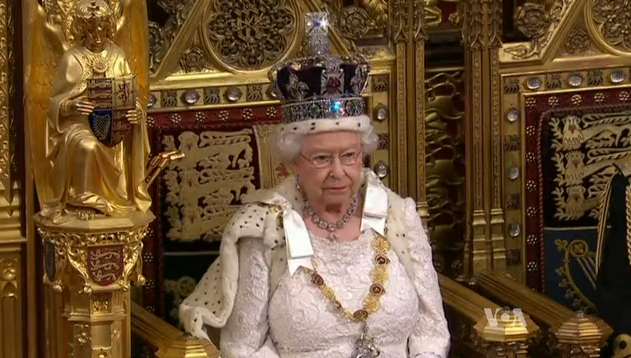It is an issue many countries are grappling with as extremist groups gain power in the Middle East, fueled in part by donations and fighters from the West.
Britain’s Home Secretary announced plans for the legislation, which had been promised if the Conservative Party won the recent election. The new government included it in the annual Queen’s Speech, laying out its official program.
“Measures will also be brought forward to promote social cohesion and protect people by tackling extremism,” said Queen Elizabeth II.
Stopping extremism
The government wants stronger regulatory powers over charities and religious institutions to ensure they are not involved in promoting extremism. It also wants the ability to ban individuals from expressing extremist views.
Up to a point, radicalism expert Hannah Stuart of the Henry Jackson Society welcomes the effort to be tougher on extremist groups, even when they are not directly connected to violence.
 |
“Where extremism is allowed to flourish, we see the diminishing of individual rights, but also of group rights, and it’s usually, sadly, minority rights," she said. "So it’s usually Muslims, themselves, who are the first victims.”
But Stuart said she is concerned about the potential limits on individual speech.
“We have to accept that there will be certain extremist ideas and dissent on our street corners, and we have to trust that as a society, and civil society particularly, we’re strong enough to rebut that openly, rather than hide it away,” she said.
Speaking via Skype from the Muslim Association of Britain, Omer al-Hamdoon agreed with that, and expressed a more pointed concern.
“Muslims, specifically within Britain, are going to be muted, and denied their freedom of speech, even though they have not committed any criminal act,” he said.
Seeking new ways
Hamdoon said current laws against incitement are adequate, and he disputed the idea that extremist rhetoric fuels violence.
“The Home Secretary has mentioned this thread between non-violent extremism and violent extremism. I don’t think there’s any evidence to support this kind of theory,” he said.
Hamdoon said the government is ill equipped to differentiate between ideas that are outside the mainstream, and those that might be dangerous. He said the new law would make some legitimate Muslim preaching illegal.
But Stuart said so far, the problem has been the opposite.
“We have failed to identify extremism rather than intend in any way to criminalize Islamic practice,” she said.
Stuart said there is a consensus among many democracies that they need to find new ways to deal with the rise of extremism, without violating the rights of the people they are trying to protect.







